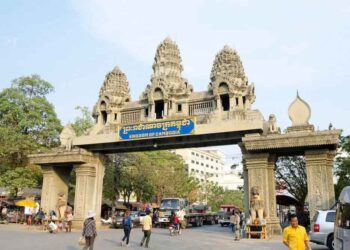Guam’s Senate has passed a bill to make all gambling in the US territory illegal after the government pays off the debt of its financially troubled public hospital.
A report in Pacific Daily News says the sunset provision, which passed unanimously, is contingent on gambling continuing until its proceeds are sufficient to retire the roughly US$18.8 million Guam Memorial Hospital owes vendors for services to uninsured patients and for bad debt.
However, the precise amount of the debt hasn’t been determined, the newspaper said, and the $18.8 million figure, an estimate as of March, will not be part of the final version of the bill sent to Gov. Eddie Calvo, who will have 10 business days to decide how to act on the bill.
The measure comes after several days of heated debate over the island’s gambling machines and whether gambling is legal on the Pacific Ocean island, the largest of the US Commonwealth of the Northern Marianas.
Voters earlier this year rejected a proposal that would have legalized commercial bingo at the Guam Greyhound Park. The measure also had been a subject of intense public discussion. Supporters, led by Guam-Japan Friendship Village, said commercial bingo would boost the island’s economy and benefit educational, health and safety programs through a 20% “business privilege tax” on gross income. Opponents said it would hurt non-profit entities that rely on charity bingo for fund-raising and would lead to other forms of gambling. Non-profit bingo generated more than $10.5 million in sales in 2011 and paid out $8.7 million in prizes, according to local reports.
Meanwhile, a separate bill to tax gambling machines and establish a Guam Gaming Commission died last week amid ongoing fighting between the Attorney General’s Office, the Tax Department, machine owners and lawmakers on all sides of the legality issue.
The Tax Department renewed licenses for more than 200 machines earlier this month over the objection of Attorney General Leonardo Rapadas, who maintains the machines are illegal because Guam law prohibits licensing gambling devices. The Tax Department justified its action on the basis of administrative rules and regulations that are less clear on the matter. Mr Calvo likewise disagreed with Mr Rapadas’ assessment, saying his office had reviewed the laws and determined the machines are operating legally.


































